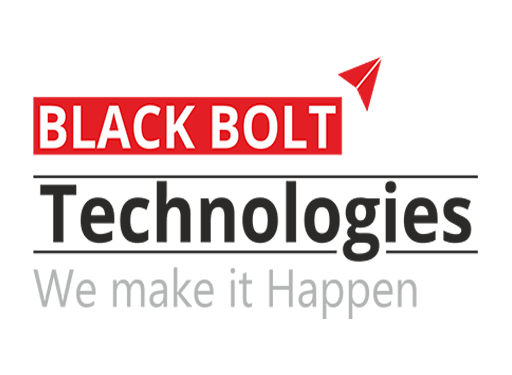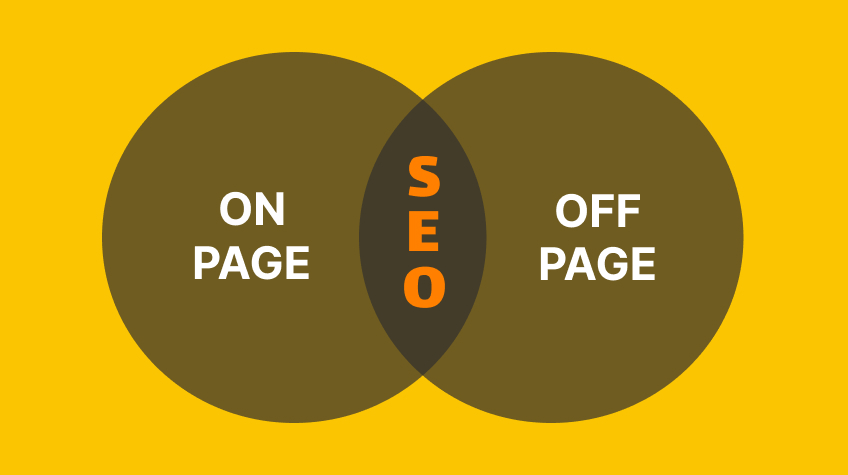On-Page vs. Off-Page SEO: What’s the difference and why both are essential?
SEO (Search Engine Optimisation) is a big strategy covered under digital marketing that includes on page SEO as well as off page SEO. These are the two basic parts of SEO that ensure that a website has visibility, authority, and traffic. To put together a comprehensive SEO strategy that works, it is crucial to understand what the differences between these two are and why they are both essential. In this blog, we will cover what is the difference between on-page and off-page SEO, how it is both that matter to get a good website, and we will decide to combine the two to win highly.
What is on-page SEO?
On-page SEO refers to how we optimise the individual web pages to get higher in the search engine. It involves telling individuals that you’ll have access to the website where users can see and work directly with them. The majority of work that we focus on on-page SEO is on how easily the content, structure, and relevance of the website are understood by search engines.
Key Elements of On-Page SEO
- Keyword Optimisation: The foundation of on-page SEO is keywords. Potential customers search by these terms and phrases to find information, products, or services. But how does this help? The keywords we use to optimise the content, headings, meta tags, and URL make the process of search engines understanding and matching the page topic to the search queries easier.
- 2. Meta tags and descriptions: Meta titles and descriptions are HTML elements that describe a web page. The title tag is what appears in search engine results as a clickable title. Followed by a meta description, which is a summary of the page. With target keywords and catchy copy, these can be optimised, and the result enhances click-through rates.
- High-Quality Content: Search engines tend to favour websites that have quality content, the kind that tells something valuable and engaging. The content needs to be made to answer user questions, solve problems, and be easy to read. All of these things contribute to making a page rank on the page of a search on Google.
- Internal Linking: Internal linking connects pages within the same website, allowing users and search engines to navigate the site. Internal linking can help spread page authority to the other pages within a website and make certain pages be seen.
- 5. Mobile-Friendliness and User Experience (UX): With the increasing usage of mobile devices, a mobile-optimised website becomes important for on-page SEO. Rankings and user engagement depend on the user experience—fast page loading times, intuitive navigation, and responsive design.
What is off-page SEO?
Off-page SEO refers to that everything takes place on a page other than on the website itself, this helps improve the website’s search ranking which is considered to be off page marketing. On page SEO is everything you can control on your website, and off page SEO is everything you cannot.
Key Elements of Off-Page SEO
- Backlinks: Inbound links, or backlinks, are when other sites link to your site (backlink). Because they are seen as endorsers of your site’s authority, they are often one of the most important ranking factors for SEO. However, quantity doesn’t matter as much as the quality of backlinks. Because reputable and high-authority websites link more than others, links from reputable and high-authority websites carry more weight and therefore intercede positively in rankings.
- Social Media Signals: Social media activity is not a direct factor for SEO rankings, but it plays an indirect role; that is, social media activity can lead to more users browsing your website and more engagement. Social media lets you share content, boost awareness, and start conversations to attract more inbound links and traffic.
- Guest Blogging: Writing high-quality articles for sites of similar industries can not only help you build backlinks but also make you visible and credible. By guest blogging, you can connect with an audience that already exists, getting you traffic and valuable links back to your website.
- Influencer Outreach: Working with influencers or other industry players could assist in increasing the amount of people your website or content will reach. If you get mentioned by influencers who share your content or talk up your brand, you may see an uptick in traffic and build brand awareness as well as more backlinks.
- Online Reviews and Reputation Management: SEO can be influenced by reviews, testimonials, and content from user-generated content on third-party sites. Platforms such as Google My Business or Yelp can provide positive reviews that can increase trustworthiness and boost more traffic, driving traffic to your site that in turn increases the overall rankings on your site.
Why on-page SEO and off-page SEO both matter
Balance is necessary between on-page and off-page optimisation, which can make for a successful SEO strategy. Every type has its purpose when seeking the ultimate goal of boosting search visibility, driving more organic traffic, and improving the user experience.
Complementary Roles
On-page SEO means the site is technically sound, has content, and is user intention-orientated so that search engines are easier to index and rank. That being said, even the most optimised website won’t be able to rank without authority. This is where off-page SEO becomes important. The most popular way to promote pages is with backlinks as the main off-page strategy parameters; these criteria signal to the search engine how trusted and relevant a website is, so they rank higher on the results.
Building Authority and Trust
The credibility and authority of a website are determined by search engines like Google by observing its backlinks, mentions, and reputation across the Internet. However, establishing this authority is off-page SEO, but mainly through acquiring high-quality backlinks. On the other hand, on-page SEO is everything about making sure that when the users land on the page, they go through the amazing content so that they can meet their needs.
Long-Term Success
To have long-term SEO success, you just cannot focus on one aspect. Off-page efforts build external credibility, and on-page optimisation helps improve content relevance as well as technical health. With poor content and no backlinks, search results will bury a website. Likewise, a site with many backlinks but poor on-page manipulation may rank decently but achieve very low bounce rates and conversions since it has a poor user experience.
The Synergy Between On-Page and Off-Page SEO
One of the most important aspects of understanding SEO is realising that on-page and off-page strategies work best when used together. While each has its distinct role, they are complementary, and neither can deliver optimal results in isolation.
Building a website’s foundation by doing on-page SEO is important and quite crucial for your website to be according to the search intent of the user. With a higher chance of retaining users and encouraging engagement, such a page is more likely to rank higher than one with a poorly structured, slow-loading page and a lack of well-optimised content. A good strategy makes for a developed user experience and allows search engines to perceive and credit a site’s relevance for certain queries.
Off-page SEO is links from authoritative websites or also mentions by social media. But not all links are created equal, with off-page SEO more an art than a science and more about building long-term, ethical relationships with other authoritative websites.
Conclusion: SEO Success is a Holistic Approach
Finally, both on-page SEO and off-page SEO are important elements of an effective SEO strategy. Off-page SEO (on-page, off-page) means your website will be perfectly optimised for search engines and users, using high-quality content, technical type, and user-friendly usability. However, off-page SEO focuses on building authority and credibility via backlinks, social signals, and such external recognition.
Both on-page and off-page strategies are to be included in a well-planned SEO strategy because of their interdependence on search engine rankings and organic traffic. If you are looking for guidance from the best SEO company in Chennai to help businesses maximise their full SEO potential, Black Bolt is well-positioned to guide you. Black Bolt gives your site the success it deserves by developing a balance of technical and creative strategies aimed at achieving the most optimal result across the plethora of search engines.
Black Bolt, the top SEO agency in Chennai, can help you deliver measurable results, increase visibility, and find your target audience quickly. Whether it’s to build the perfect foundation or amplify your online reputation, Black Bolt, the best SEO company in Chennai, provides comprehensive services to help you grow your digital presence and reach more desired results.
By choosing Black Bolt, the best SEO company in Chennai, you’re not simply investing in higher rankings; you’re teaming with experts who understand the ever-changing nature of SEO and how to generate long-term success.


